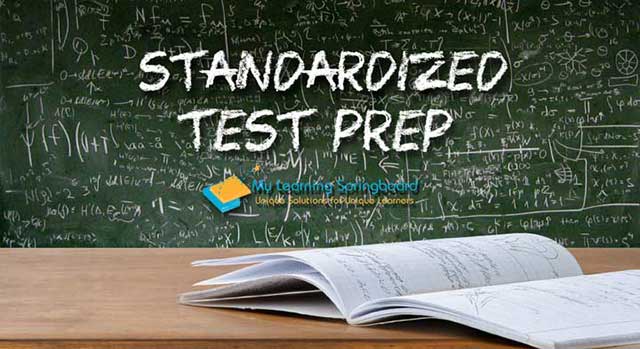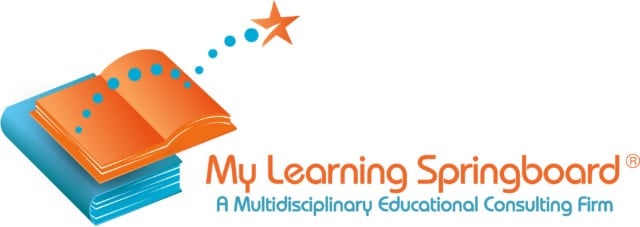
Auditing Academic Skills: Recent Research and Data
In a recent research brief from July 2023, NWEA estimates that the average student needs 4.1 additional months of reading instruction and 4.5 additional months of math instruction in order to catch up to pre-pandemic levels. This month, the Aspen Economic Strategy Group hosted an event titled “Overcoming Pandemic Learning Loss: Bringing High-Dosage Tutoring To Students Nationwide”, verifying and expanding upon the very real diminished performance and skill gaps we’re seeing nationwide. Notably, the average 8th grader is one full year below grade level.
This data is reinforced by the lower scores we’ve seen at large on independent school achievement test data, such as CTPs or MAP testing. Of note, the average baseline performance we’re seeing for ISEE and SSAT admissions testing is lower than the average performance we saw prior to the pandemic. In fact, for the first time in 15 years, we’re seeing a curve on the math achievement section of the Upper Level ISEE (grades 9-11) in the student’s favor. This indicates concerning trends with math performance despite all the “A” grades we’re seeing on students’ report cards; foundational skills are often shaky, and the ability to generalize and apply skills and concepts when problem solving in novel situations is not as strong as it should be.
Auditing Academic Skills: Our Recent Observations
Our conversations with parents and school faculty in addition to our own observations confirm the following concerns across the curriculum:
- Writing skills across all grade levels, and for all writing purposes (e.g narrative, informational, and persuasive), needs improvement. Subcategories of writing work include:
- Prewriting strategies
- Basic and advanced grammar and syntax
- Sentence fluency and varying sentence structures
- Transition words and phrases
- Sequencing and chunking ideas to create effective, multi-paragraph pieces
- Incorporating quotations and citing references
- Systematically editing and proofreading
- Incorporating stronger vocabulary
- Improving close reading skills, including note taking, annotating, and properly outlining, is a common need for students in the upper elementary, middle, and high school divisions.
- Decoding, reading fluency, and comprehension work with students in elementary and middle school, which includes effectively summarizing texts and determining / justifying the main idea of a non-fiction text.
- Automaticity of basic math facts (all four operations).
- Work with fractions is complex and spans common fractions, decimal fractions and percentages. We see a lot of skill gaps here.
- Executive function skill building is needed, particularly as it relates to work prioritization, goal setting, time management, minimizing distractions, and developing enhanced metacognition so that a student learns to set themself up for optimal performance under particular circumstances.
Updated Admissions Testing Requirements: Grades 4 through 10
As a result of academic doubt, we’ve seen a return to ISEE or SSAT testing requirements at most independent day schools and some highly selective boarding schools. Despite the continued use of “test-optional” language at various schools, opting-in is the better strategy for most of our students in light of a holistic review application process. While this phrase is particularly used in college admissions, it’s relevant to K-12 admissions, too.
Therefore, students engaged in ISEE and SSAT preparation have the specific advantage of auditing academic skills from lower grades and systematically closing any gaps before moving onto accelerated instruction. This work is useful whether you intend to transition school environments or not! Aside from the immediate boost to classroom performance this work stands to achieve, students who remain at a particular school for ongoing matriculation will have new peer competition with students who intensively engaged in this preparation work in order to be admitted, especially at grades 6 and 9 where there are more available spots.
What Should You Do?
NOW is the time to make a plan for diagnostic work in January for your student(s). Completing diagnostic ISEE or SSAT work as early in January as possible allows us to make the best use of our January to June runway leading up to spring break and then summer break. This is true for any student currently in grades 3 through 10. On a related note, a current 10th or 11th grader ought to be seriously considering ACT or SAT diagnostic work at this time, too.
While these standardized testing tools can be used to glean valuable insights for instructional planning, there are alternative and/or complementary ways to benchmark reading, writing, and math skills, too. Curating the best tools for your family’s needs is a conversation we would love to have with you, and it’s applicable for all students in grades K-12. Benchmarking data is critical for informing instructional planning.
We continue to help our students achieve success in all school settings, including public schools, independent schools, boarding schools, and colleges. This success is the result of taking the harder, more steady road exceeding expectations everywhere we can. For admissions processes, submitting strong test scores continues to be a way to demonstrate academic mastery in a climate where there is considerable doubt.
The antidote to skill gaps is high-dosage tutoring, which is generally defined as intensive 1:1 tutoring at least 3x per week, or for about 50 hours over a semester. We’ve seen an increase in the requests for high-dosage tutoring spanning all grade levels over the past year, particularly, and this trend continues.
With most planning and establishing new routines, it’s important to not let perfect be the enemy of good. Plans can always be tweaked or recalibrated as more information becomes available (e.g. neuropsychological evaluation, standardized testing data, school report cards). With that in mind, if you have any questions or concerns about your child’s academic performance, or if you have an interest in pursuing an independent school or college admissions process, please contact us to schedule an appointment for further discussion without delay!
By Brad Hoffman, M.S.Ed. and Board Certified Educational Planner, and Faya Hoffman, M.A. and Board Certified Educational Planner

